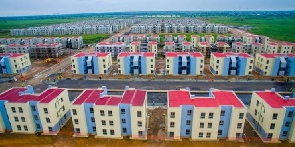Accra, March 5, GNA - The Essential Services Platform of the Integrated Social Development Centre (ISODEC) on Friday waded into the debate about the feasibility of the one-time-off premium payment for the National Health Insurance Scheme (NHIS) declaring that it was possible. It therefore expressed concern at the pessimism being articulated about its feasibility.
ISODEC said it was even more saddened by the lack of provision of alternatives that would allow for the poor to have access to health care and the failure of the media to demand same from commentators. A statement issued in Accra and signed by Mr Leonard Shang-Quartey, Convener, Essential Services Platform of ISODEC, said government must feel obligated as its social responsibility to address the health concerns of the teeming number of the poor and vulnerable.
A number of people, including MPs of the opposition New Patriotic Party, and the former Director-General of Ghana Health Service, Professor Agyeman Badu Akosa, have said the one-time-off premium is not possible in Ghana.
The debate was ignited again this week after the Deputy Minister of Health, Mr Rojo Mettle-Nunoo, told Parliament that one of the scenarios which looked at it said it would be expensive for the average Ghanaian. However, ISODEC said: "For the Essential Services Platform, one-time-off premium payment is not only possible but urgently needed. That which is not sustainable is the thousands of preventable deaths which could be avoided only if health care were accessible to all.
"One-time-off premium payment is possible and achievable if government is willing to chart this path. The people of Ghana clearly demonstrated where they wanted to invest their taxes in the 2008 election when they voted for one-time-off premium. Government must respect this mandate." ISODEC said if the use of the term financial sustainability simply meant balancing of the books to account for funds allocated then the larger health goals would be glossed over.
It said a careful observation of health financing from the days of cash-and-carry to the present indicated that the situation ended with government's willingness or unwillingness to act. "The situation where the poor are sent back home with their illness through barriers created by the annual premium payment is not excusable." It said the actuarial studies which had been carried out on the NHIS was only important in helping to ascertain how much it would cost to implement the one-time-off premium payment but not be used as the basis for determining premiums, as that would detract from the social protection intentions informing the policy.
It noted that though the NHIS was de fined as an insurance system, in practice this was not the case because about 70 per cent of the scheme was tax financed, 24 per cent being social security contributions from formal sector workers and only about five per cent received by way of proceeds from mutual insurance schemes.
It said if government viewed unfettered access to quality health care as a priority, then government would take the necessary steps to occasion the necessary trade-offs to ensure access.
"The fact that we are a poor country does not mean that we should allow the poor and vulnerable to fie from their diseases. Indeed, it is precisely because of this that we have to ensure social protection for the poor. "The claim therefore that one-time-off premium payment is not feasible, without accompanying suggestion of how access to the poor could be addressed is most unfair, especially coming from highly placed personalities with huge financial protection and entitlements from the State."
The statement said the decision to move from cash and carry to the NHIS was a political decision that reflected health as a priority area. The statement said government must ensure optimal and efficient utilization of current resources made available to the scheme. The group urged government to explore a way of ensuring a collective benefit of the expected oil revenue through the provision of special levies on oil resources for health financing. 5 March 10
General News of Friday, 5 March 2010
Source: GNA
















